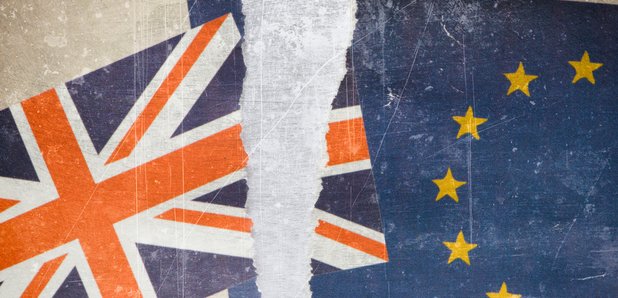
Shelagh Fogarty 1pm - 4pm
17 January 2017, 10:47 | Updated: 28 October 2019, 15:53

Theresa May is setting out her plan for Britain to leave the European Union - and it includes the Customs Union and ECJ. But what does leaving them actually mean? LBC explains.
What Is Article 50?
This is the part of the Lisbon Treaty makes allowances for a member state to leave the EU. Theresa May plans to trigger this in March with a formal declaration to the European Council, which then allows for a two-year negotiation period, when we must discuss our new relationship with the EU - from trade to immigration and everything in between.
Our deal must be approved by a ‘Qualified Majority’ of EU member states, and once agreed cannot be amended or vetoed by the European Parliament. The two years CAN be extended, but only by unanimous decision.
What Is The EU Single Market?
The EU aims to make it as easy for London to trade with Lisbon as it is for London to trade with Liverpool - and they have done this by creating a single market. Trade barriers have been removed, so that goods, people, services and capital can move freely between EU countries. As part of that, countries have to harmonise their rules to those of the EU.
If we want to stop freedom of movement, as Theresa May says she does, then the UK has no choice but to leave the Single Market. That would very likely end the rights of all UK-based services firms to sell into European markets without facing local regulatory barriers. Services could find themselves facing unfamiliar regulations, with the financial sector potentially losing the right to operate from a London base outside the UK.
What Is The EU Customs Union?
A customs union is the agreement with other countries about trade and the European Union Customs union is that agreement with 28 member states, plus Monaco. This means the countries can trade with each other without any taxes or tariffs. Britain would need to leave the EU Customs Union to be allowed to make our own trade deals with other nations.
There is a mid-point: Norway is part of the European Economic Area, which gives it access to the single market, but is not in the EU's customs union.
What Is The European Court of Justice?
This is the highest level court within the EU, with a primary function to ensure that treaties and legislation is applied across all branches of the EU. The PM will insist the European Court will lose any control of British affairs from the moment the UK leaves the EU.
Any law they set is compulsory for all EU members, so Britain will need to leave the ECJ to regain control of our laws. However, Theresa May's plan is The Great Repeal Bill, which will make ALL EU laws part of British law and we can then get rid of the ones we don't like in our own time.
What Is Freedom of Movement?
This has been what Theresa May called her "red line". Membership of the Single Market means that people must be allowed to travel between EU member states with no restrictions. It is widely believed this is what led Britain to vote to leave the EU. This means that any person who lives within the EU could come and live in Britain - and there is nothing anyone can do to stop that.
The EU have been very clear that freedom of movement is a key tenet of the union and no member will be allowed to remain in the EU without keeping freedom of movement.